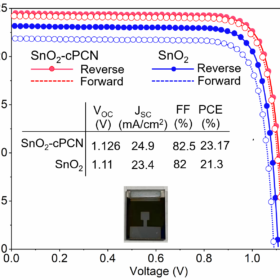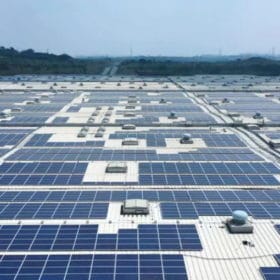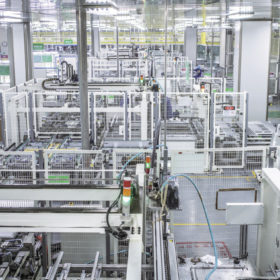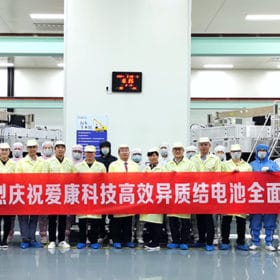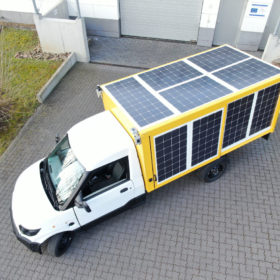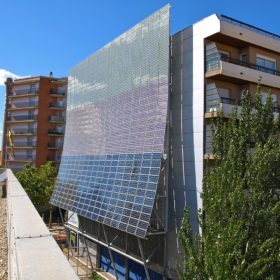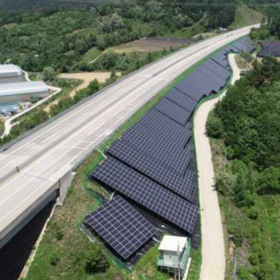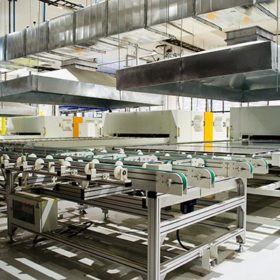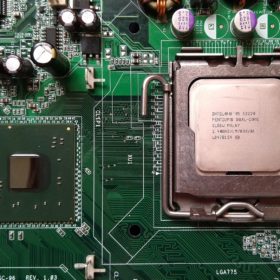Perovskite solar cell with larger grain size and 23.17% efficiency
The result was achieved for a small area device with the size of 0.1 sq cm. The cell was fabricated with a Tin(IV) oxide electron transport layer modified with crystalline polymeric carbon nitrides (cPCN).
India closing in on 7 GW of rooftop solar
India had installed 6.8 GW of cumulative rooftop PV capacity by the end of 2020, with consumer-owned systems accounting for about 72% of the total, according to Bridge to India.
Jinko shipped 18.7 GW of modules in 2020
The Chinese module manufacturer saw its net profit rise only slightly last year, despite a larger increase in turnover and shipments. It expects to almost double its shipments to up to 30 GW of PV modules in the current fiscal year.
Chinese PV Industry Brief: Akcome achieves 24.2% efficiency for heterojunction cell in mass production
The solar cell manufacturer claims to have achieved the record efficiency at its 2 GW Huzhou, in northern Zhejiang province. Meanwhile, PV production equipment supplier Jinchen is raising funds for the development of its plasma-enhanced chemical vapor deposition (PECVD) technology for heterojunction cell production lines.
Vehicle-integrated PV for light commercial vehicles
A German consortium is building a light commercial truck prototype powered by 10 PV modules featuring Meyer Burger’s heterojunction cells. Initial estimates suggest that the panels could cover more than 25% of a vehicle’s total annual driving distance, and researcher Robby Peibst told pv magazine that the vehicle-integrated photovoltaic market could hit 5 GW by 2030.
PCM-based passive cooling for BIPV systems
Indian scientists tested four kinds of phase change materials (PCMs) for solar module cooling in building-integrated photovoltaics. The PCMs were encapsulated with the PV system and the building envelopes and were also found to be beneficial to the thermal comfort inside the buildings.
South Korea wants to build large-scale PV along highways
The new plan comes on top of a scheme launched in late March to deploy solar using railway infrastructure. The Korean government expects private developers will build solar plants on the highways’ idle sites for a combined capacity of 243 MW by 2025.
Tata Power Solar expands cell, module capacity
Tata Power Solar, a PV manufacturer and EPC contractor, has added new lines to its factory in Bangalore, India. It is widening its product range to include half-cell and bifacial mono PERC panels.
Saudi Arabia’s second PV tender draws world record low bid of $0.0104/kWh
The record low price was offered for the 600 MW Al Shuaiba PV IP project, which competed in the second round of the country’s procurement scheme for renewable energies.
PV rides through semiconductor chip shortage
Many industry sectors across the world are currently being hit by a semiconductor chip shortage as major manufacturers are unable to meet demand. According to Cormac Gilligan, an associate director at IHS Markit, solar and energy storage manufacturers are being less affected. In general, the solar and energy storage industries have learned lessons from being impacted by semiconductor components, for example, transistors, capacitors and resistors in prior years, Gilligan told pv magazine.
